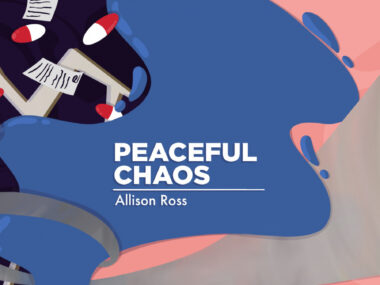The gift of therapy when dealing with ANCA vasculitis
How a therapist has helped me work through the grief of my diagnosis
Written by |

I’m a big fan of talk therapy. Always have been. I believe an outside person can offer perspective, honesty, support, and the chance for real healing. I’ve joked for years that every baby should have a “therapy trust fund” so that when they’re ready, they have the means to seek help. Our society isn’t nearly reflective enough, and therapy should be normalized.
With that said, I’ll go one step further: I think everyone with ANCA vasculitis should be given the name of a good therapist upon diagnosis. The layers of grief, loss, and the work of reconciling life with a whole new body — and often a new appearance (thanks, prednisone) — are immense.
I’m four and a half years post-diagnosis, and I want to share what talk therapy has meant for me, along with some tips for finding the right fit.
About seven months after diagnosis, I felt like I was drowning in grief. The career I loved — running nonprofits — was gone. I could barely get through an hour without collapsing into a nap. My wife and I were both grieving, together and separately, as our life of 25 years had been upended seemingly overnight.
And then came the physical changes. My once shiny, straight hair turned curly. I gained a lot of weight from prednisone, developed permanent “panda eyes” (that dark circle we may get from inflammation and blood vessel pooling), and my coloring turned pale. Oh, and I was constantly sick, fatigued, short of breath, and unwell.
How my therapist helped me heal
Enter Ryan. My angel. I found him on Psychology Today by searching my insurance, “chronic illness,” and “HIV.” (I don’t have HIV, but I wanted someone who understood the relentless grind of illness and the shame, judgment, and invisibility that come with it. Cancer-focused therapists, for example, often deal with a very different remission-and-fight model that didn’t fit what I needed.)
Four years later, I just had my last session with Ryan, since my wife and I are moving out of state. But for four years, we met weekly — and for the first two years, I cried. Often sobbed. For half the session, sometimes the whole one. That’s how our sessions earned the nickname in our house: “Cryin’ with Ryan.”
Ryan sat with me in my grief. He gave me space to feel and never rushed me to “get over it.” His empathy and compassion were transformative. He allowed me to process my pain, grief, and relationship changes (including with friends and colleagues) without overburdening my marriage. Outside of my wife, he has been the most healing presence in this journey.
A few things he said have stayed with me, and I repeat them to myself on hard days:
- “It’s a terrible thing to be so sick.”
- “Your body is working hard for you.”
- “It’s so hard to be seen. You need to be seen.”
- “It’s difficult to accept things that are quite unacceptable.”
- “Sometimes we don’t know how, but we keep surviving.”
- “Some days it is hard to be in our bodies.”
He also reminded me to laugh and watch the “Golden Girls” episode in which Dorothy has an invisible illness that no one, including her doctor, believes.
I wish for you a Ryan. I wish for you the chance to give yourself the gift of therapy. This disease is big — bigger than words can capture. We cannot control vasculitis, but we can choose who to bring alongside us. A therapist can help carry the heavy weight, soften the grief, and create space for us to heal in the most gentle and loving way possible.
Note: ANCA Vasculitis News is strictly a news and information website about the disease. It does not provide medical advice, diagnosis, or treatment. This content is not intended to be a substitute for professional medical advice, diagnosis, or treatment. Always seek the advice of your physician or other qualified health provider with any questions you may have regarding a medical condition. Never disregard professional medical advice or delay in seeking it because of something you have read on this website. The opinions expressed in this column are not those of ANCA Vasculitis News or its parent company, Bionews, and are intended to spark discussion about issues pertaining to ANCA vasculitis.






Leave a comment
Fill in the required fields to post. Your email address will not be published.